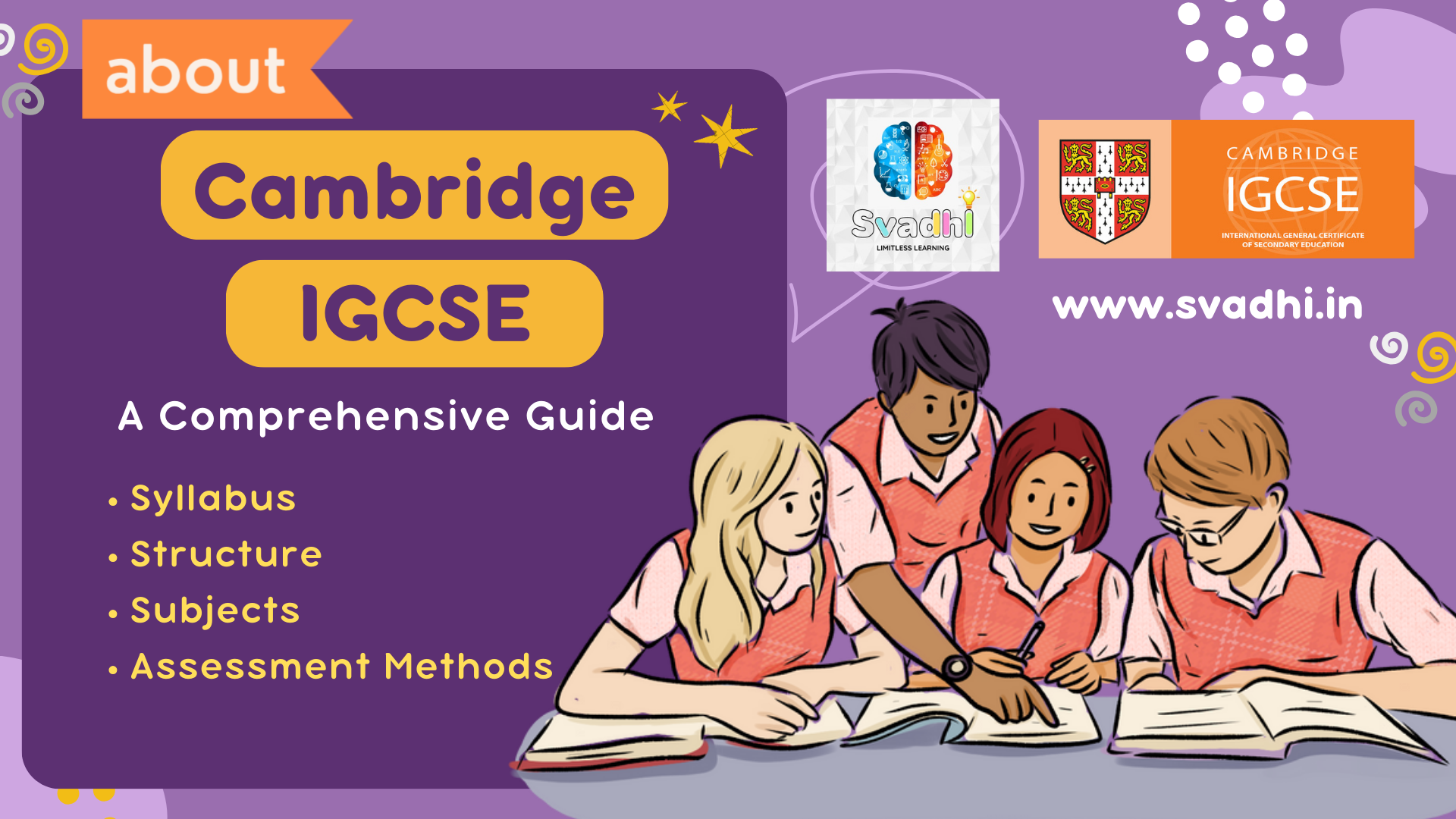The Cambridge International General Certificate of Secondary Education (IGCSE) is a globally recognized qualification designed to prepare students for further academic pursuits or entry into the workforce. In this blog post, we’ll delve into the intricacies of the Cambridge IGCSE syllabus, exploring its structure, subjects, and assessment methods.
Core Components of the Cambridge IGCSE Syllabus:
Subjects Offered:
- The IGCSE offers a diverse range of subjects, including Sciences, Mathematics, Humanities, Languages, and Arts.
- Popular subjects include IGCSE Mathematics, English as a Second Language, Physics, Chemistry, Biology, History, Geography, and many more.
Core and Extended Curriculum:
- Subjects are divided into Core and Extended curriculum levels.
- Core level covers the fundamental concepts, while Extended delves deeper into the subject matter.
- This flexibility caters to students with varying levels of academic aptitude.
Structure of the Cambridge IGCSE Syllabus:
Subject Grouping:
- Subjects are grouped into five curriculum areas: Languages, Humanities, Sciences, Mathematics, and Creative, Technical & Vocational.
- This grouping allows students to pursue a balanced set of subjects based on their interests and career aspirations.
Assessment Components:
- The assessment comprises written, oral, coursework, and practical components, varying across subjects.
- For example, Sciences often include practical exams, while Languages may involve oral assessments.
International Perspective:
- The syllabus is designed to provide an international perspective, fostering a global outlook among students.
- This global approach helps students understand different cultures and perspectives, preparing them for an interconnected world.
Examination and Grading:
Examination Format:
- Most subjects have two examination sessions each year, in May/June and October/November.
- Examinations assess a student’s understanding, application of knowledge, and critical thinking skills.
Grading System:
- The grading system ranges from A* to G, with A* being the highest and G the lowest.
- The system is criterion-referenced, emphasizing a student’s individual performance rather than a comparison with other candidates.
Benefits of the Cambridge IGCSE:
International Recognition:
- The IGCSE is widely recognized by universities and employers worldwide, opening doors to global opportunities.
Skill Development:
- The syllabus emphasizes the development of critical thinking, problem-solving, and research skills, preparing students for higher education and beyond.
Flexibility:
- The wide range of subjects and curriculum levels allows students to tailor their education to their strengths and interests.
In conclusion, the Cambridge IGCSE syllabus is a comprehensive and flexible educational framework that not only prepares students for higher education but also fosters a global perspective and a range of valuable skills. As students navigate this syllabus, they embark on a journey of academic growth and personal development, laying the foundation for future success.
IGCSE Syllabus PDF sheets are subject to copyright and licensing restrictions. However, you can easily find the Cambridge IGCSE syllabus documents on the official Cambridge Assessment International Education website.
Download Syllabus from IGCSE Subject wise Syllabus
Happy Learning Svadhi (the Self Learner)!


Leave a Reply